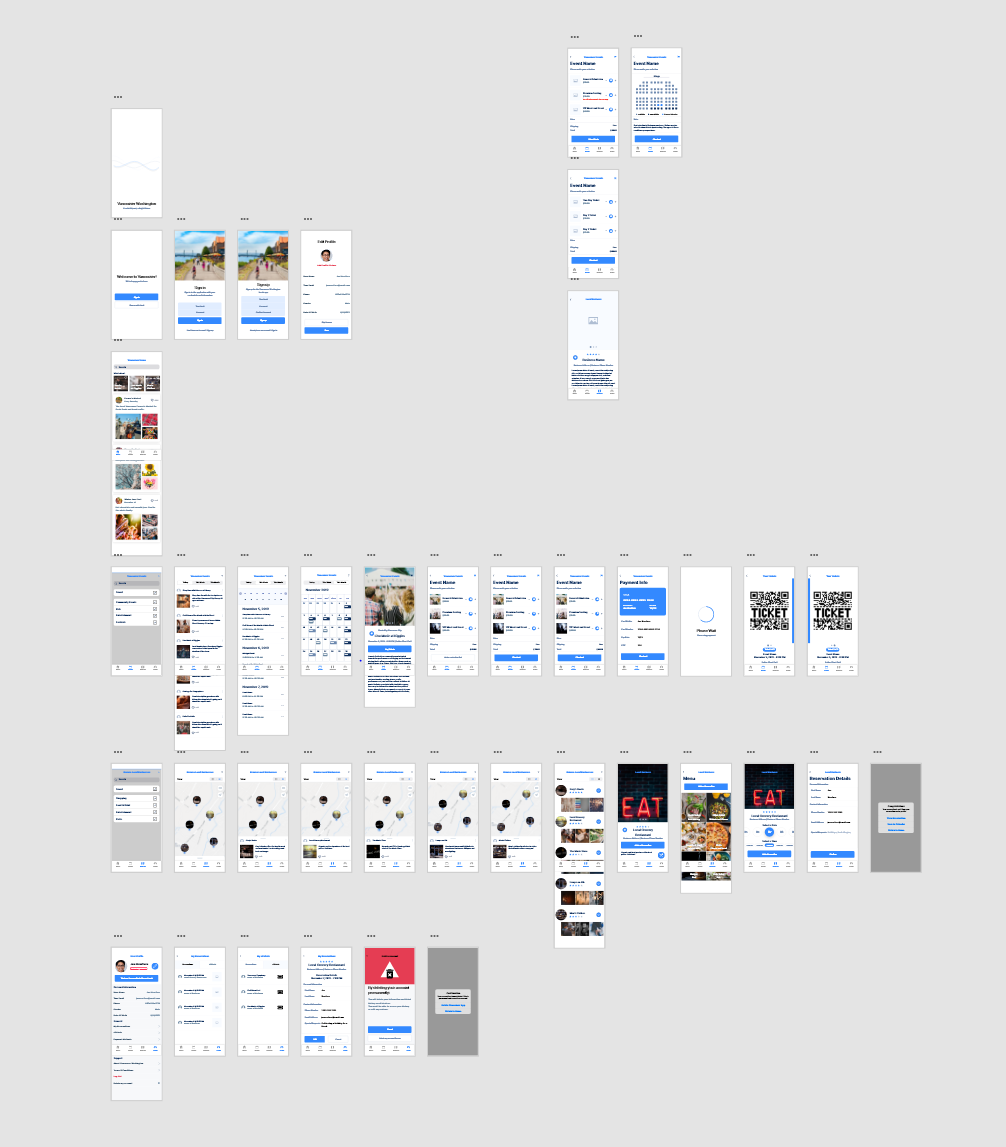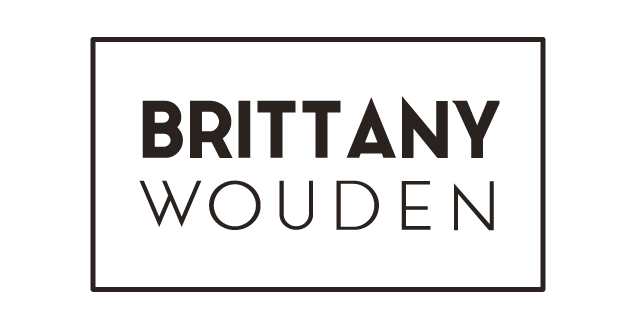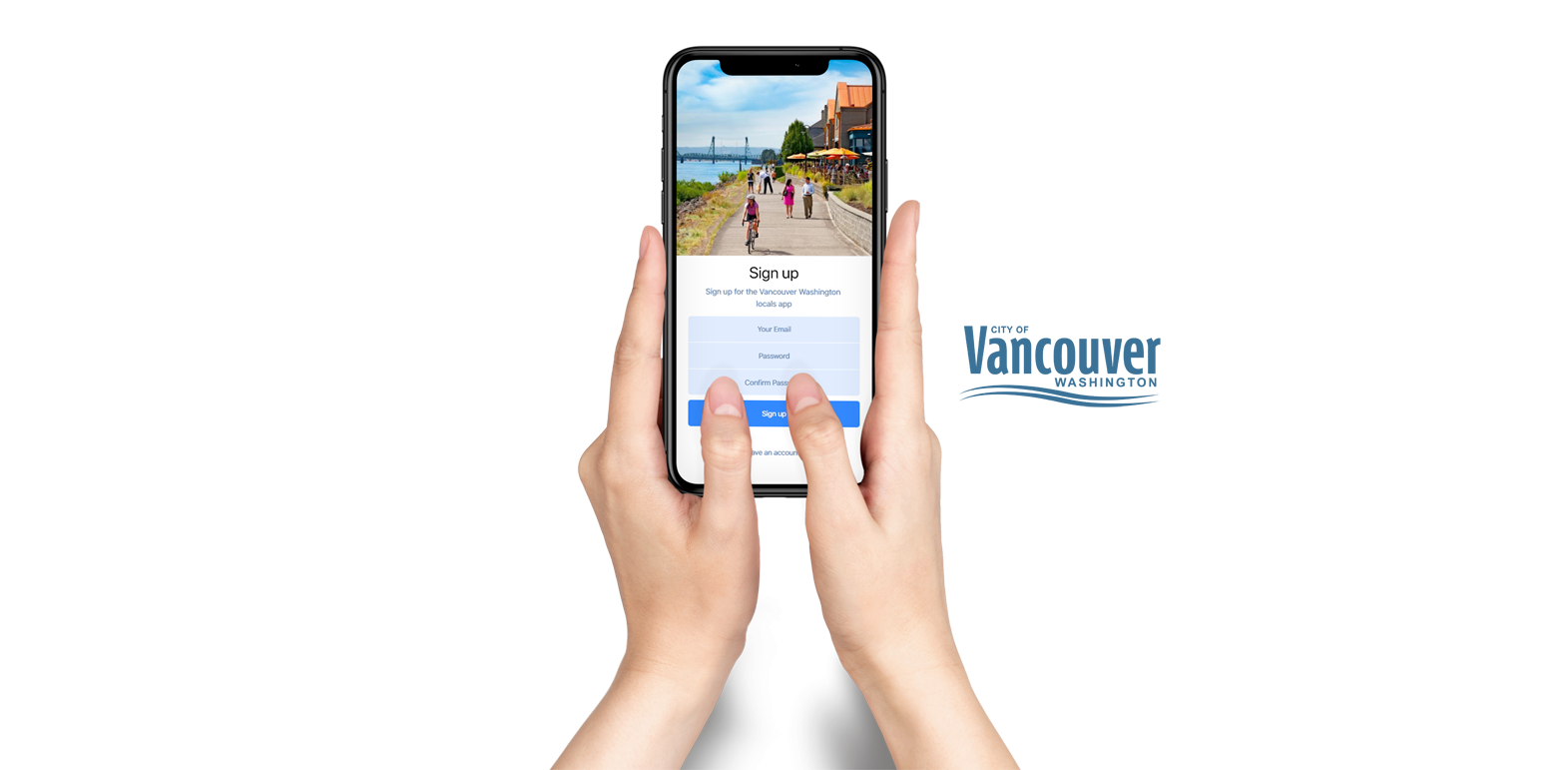
Mobile app concept to promote local Tourism in Vancouver, WA
tldr;
The Vancouver local tourism app is designed to increase engagement with community events and local businesses. The application will focus on the most essential functions that are common in a travel application. Essential interactions include browsing events and business listing, purchasing tickets and booking reservations. The experience is personalized and focused to be trustworthy, engaging and simple.
The application was created for an Interaction Design course at Kent State University.
Application Requirements to research, pitch and prototype a mobile application. The application goal was to serve a need or solve a problem and should provide or aid a service.
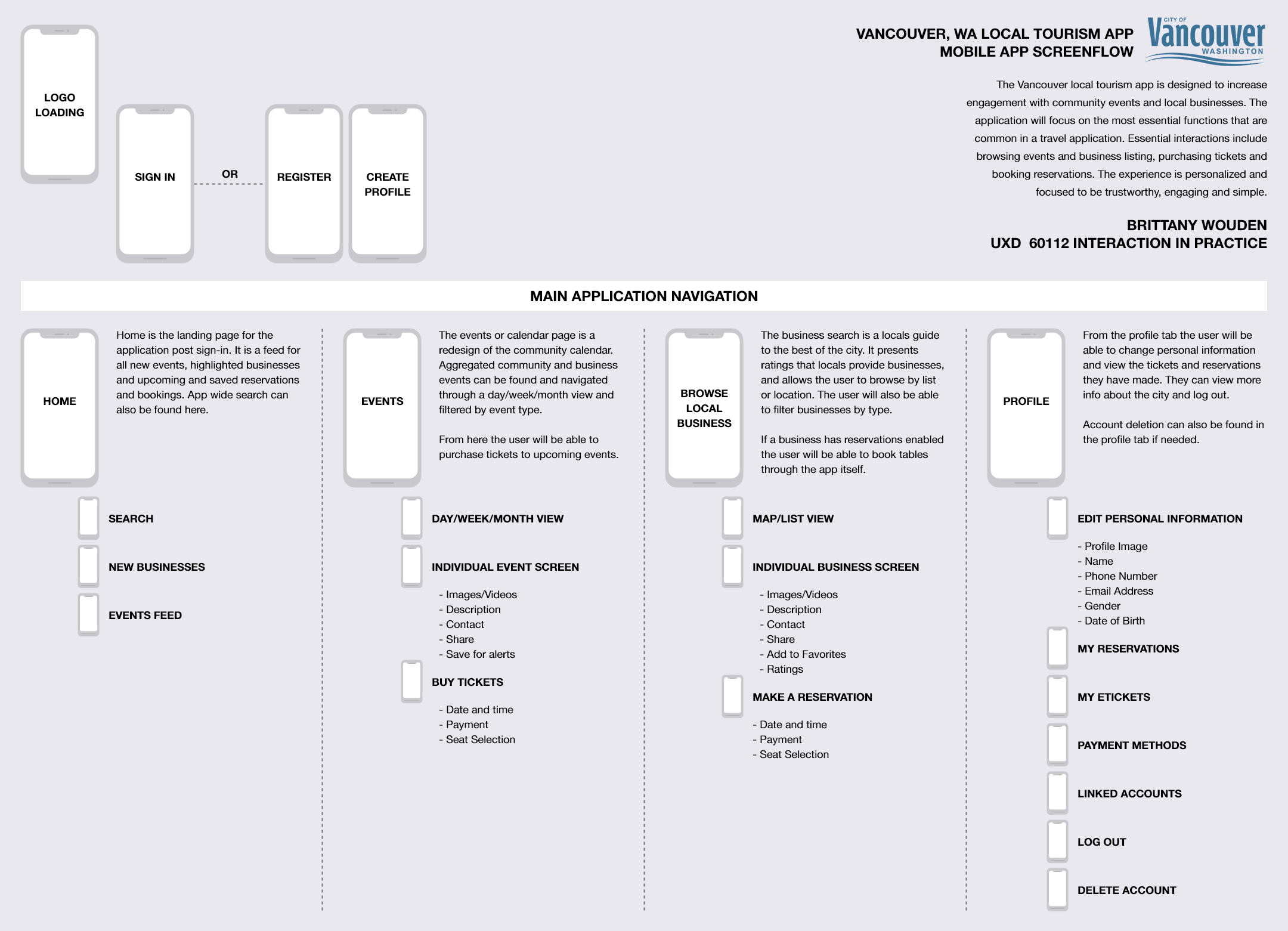
Design Brief
The City of Vancouver is in southwest Washington, just minutes north of Portland Oregon. It was founded in 1825 and boasts a population of around 185,000. The city median age is 36 years old with a median household income of $55,593/yr. The city has been expanding rapidly within the past few years. There have been numerous city improvements including the designation of a city arts distract, the building of a new waterfront park and shopping area, and civic improvements throughout the area. This has led to a population influx and renewed fervor in city pride.
Project Description
The City of Vancouver Washington is looking to create a travel, recreation and culturally based app that highlights and informs locals of current events, businesses, and news about the city. The app is seeking to satisfy two goals. First, to provide a way for locals of the area to stay aware and be involved in the city community and second, to provide a centralized location for reviews and user ratings of local businesses targeted for locals. The app will be a travel recommendation app to help the user explore their own city in the same time of experience as getting out of town. The app is also hoping to aid and encourage these trends by highlighting and engaging the user with local tourism.
The project will look at what information the user would like to interact with, how they would use the app in a personalized and useful manner, and how to use a mobile application to improve access to the parks and recreation, events, and city engagement information already provided by the city.
It is important to note that although the app will provide some crowd sourced information (for example user ratings and reviews of local businesses) the application is not a social media app but is primarily focused on providing travel and civic information to the user.
Functionality
The basic functionality required for the application will allow a user to have a truly curated tourist experience with the city they know well. Key functionality will include:
Sign-up/Register/Sign-in
Users will appreciate a personalized account experience and not just a replication of the City of Vancouver website. By allowing the user to have an individual account they can save and bookmark information relevant to them. This will also allow the user to store information that is timely such as event registration or alerts.
Reservations/Bookings
Individual events or experiences in the city that are guest limited may require a guest to make reservation or purchase tickets. Centralizing this functionality in the app and incorporating corporate third parties like event bright can allow the user to engage in local entertainment more often. It will also allow businesses that don’t have a large presence or retention on their individual websites to surface information through the city.
Calendar of Events
A key functionality of the application should allow the user to browse local events and save them to a calendar for later alerts and notifications. The calendar should be an aggregation of city provided events as well as local business events that could be of interest to the user.
Business Ratings and Reviews
Featured information about businesses in the area that provide information for a true local hotspot vibe will allow the user base to travel and learn about their own city. These will be ratings that are specific to how the locals view and search for retail and hospitality information and are specific to the city limits.
Actions and Initial Concept
For the organization of the Vancouver city app I went with a hybrid hierarchical tree and an unfolding experience. The application is meant to be a dashboard that is easily raversable for deeper information about individual items. The model could be link heavy if the hierarchical tree expanded past the initial level of navigation. At the second level the experiences are optimized so that the information progresses like a story and the user can experience each business and local at a depth that encourages exploration and progression.
The booking and reservation processes are organized in a nested doll model. The progress of booking a reservation or purchasing tickets moves from screen to screen. This is to allow for logical steps while keeping minimal information on the screen at each step in the process. The user will only need to remember the piece of information they are currently working on.
Information in the hybrid model allows the user to feel free to explore the application horizontally through top level pages without encountering the noise of more nested items.
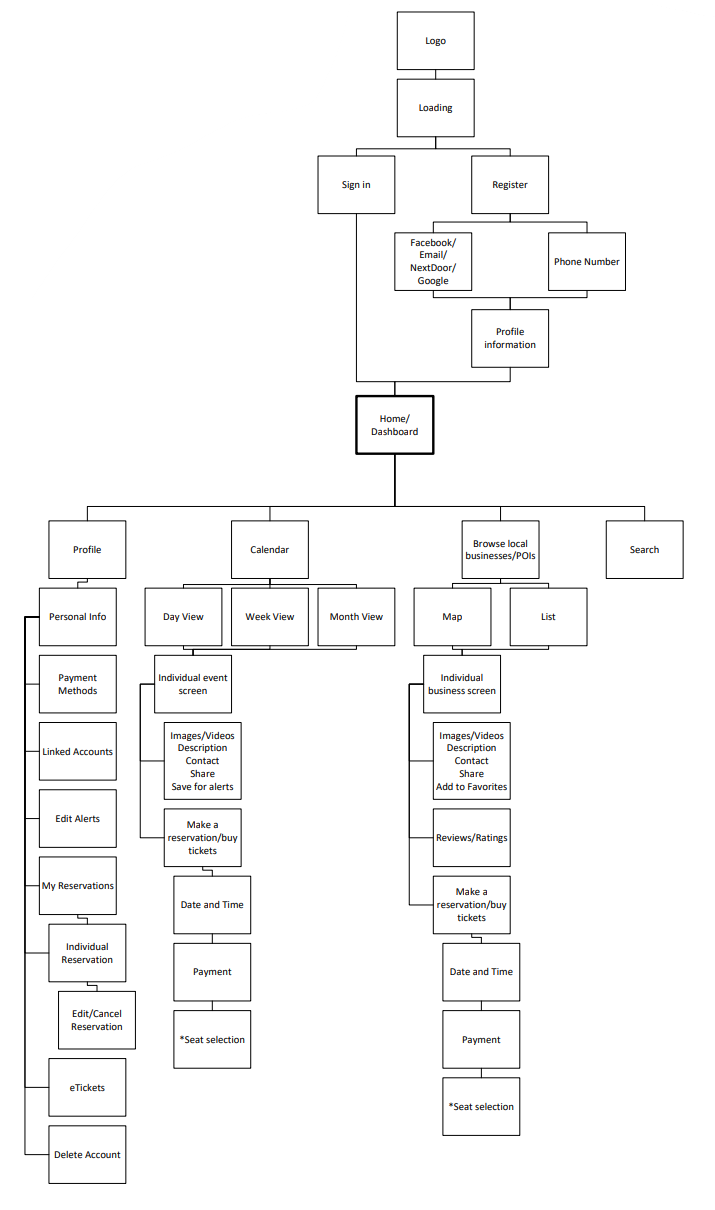
Results
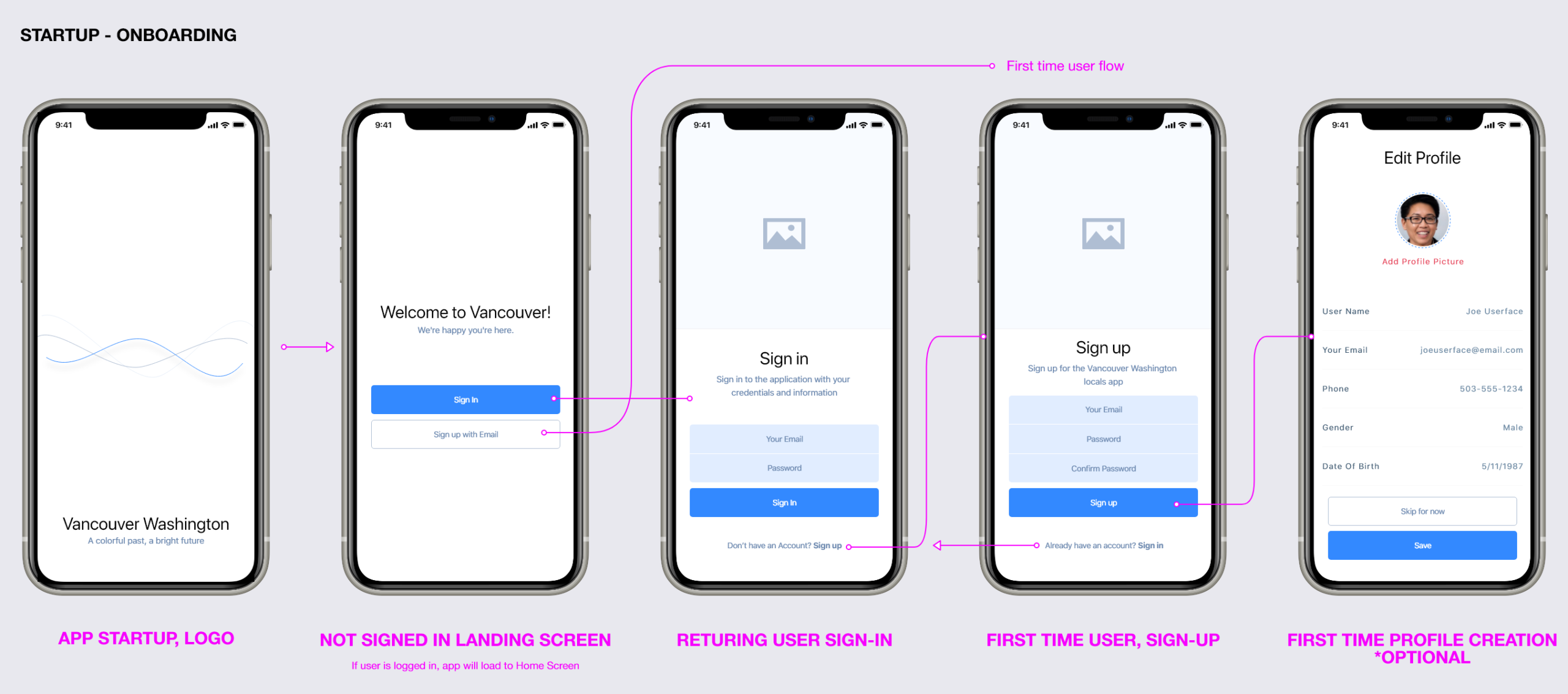
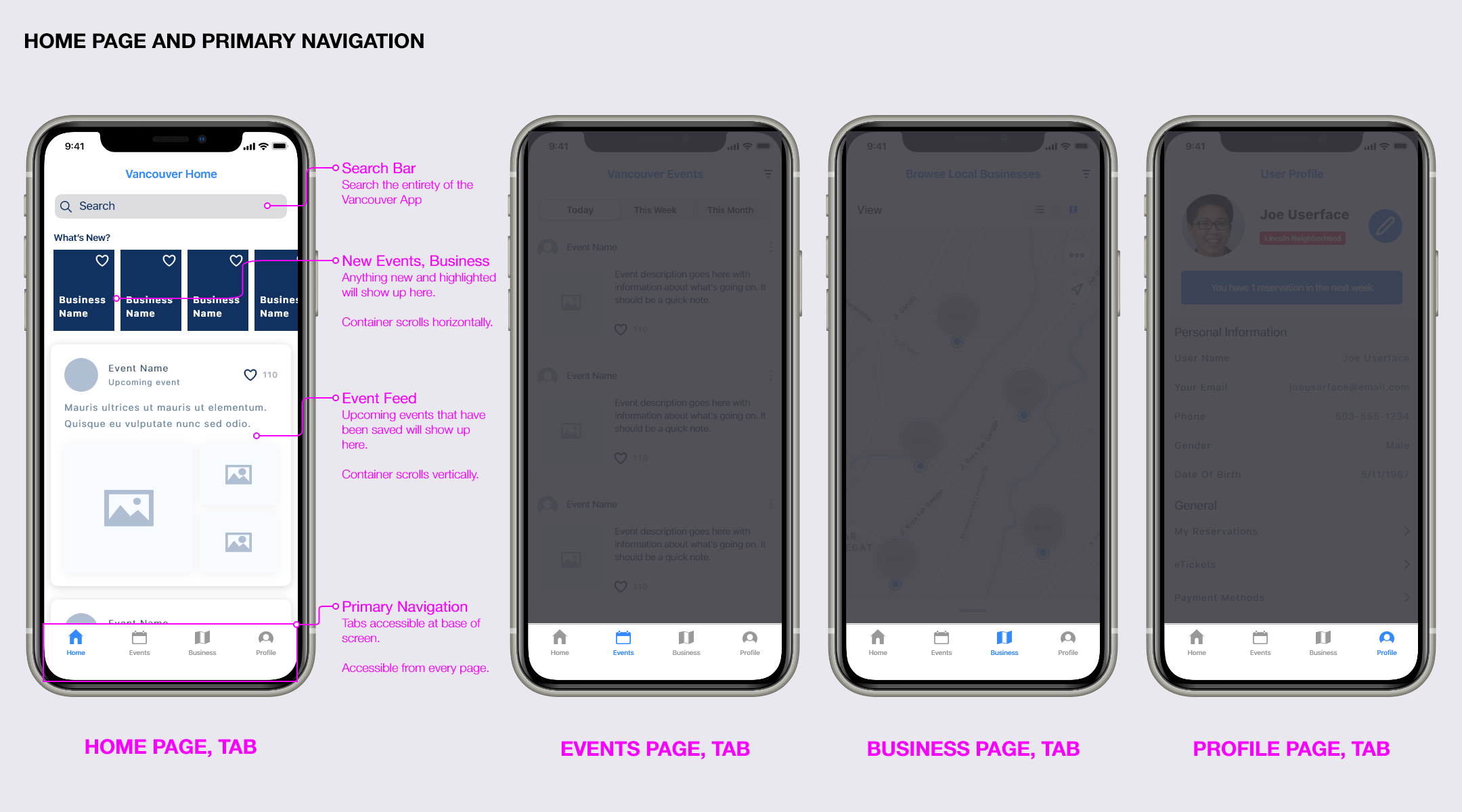
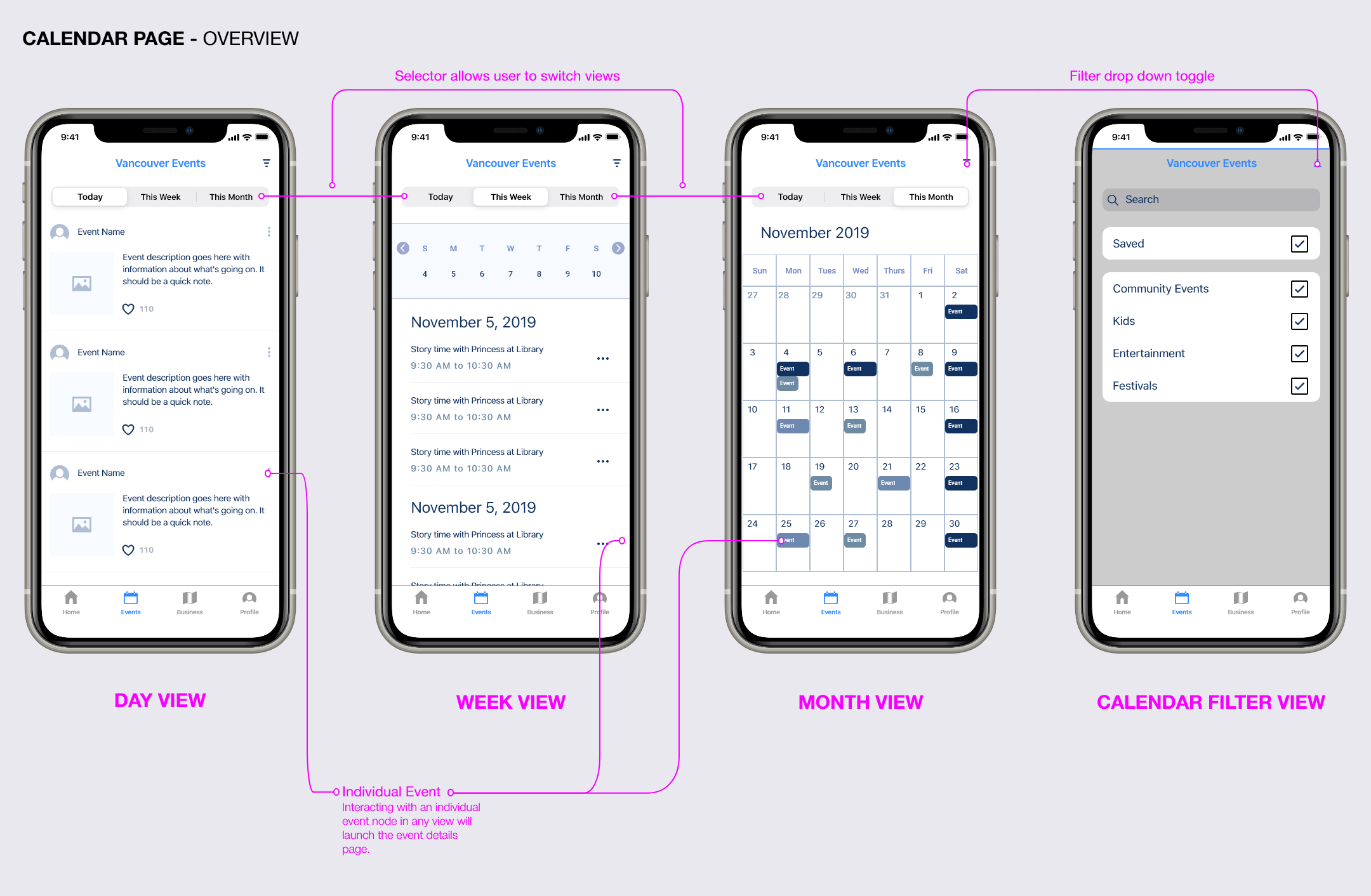
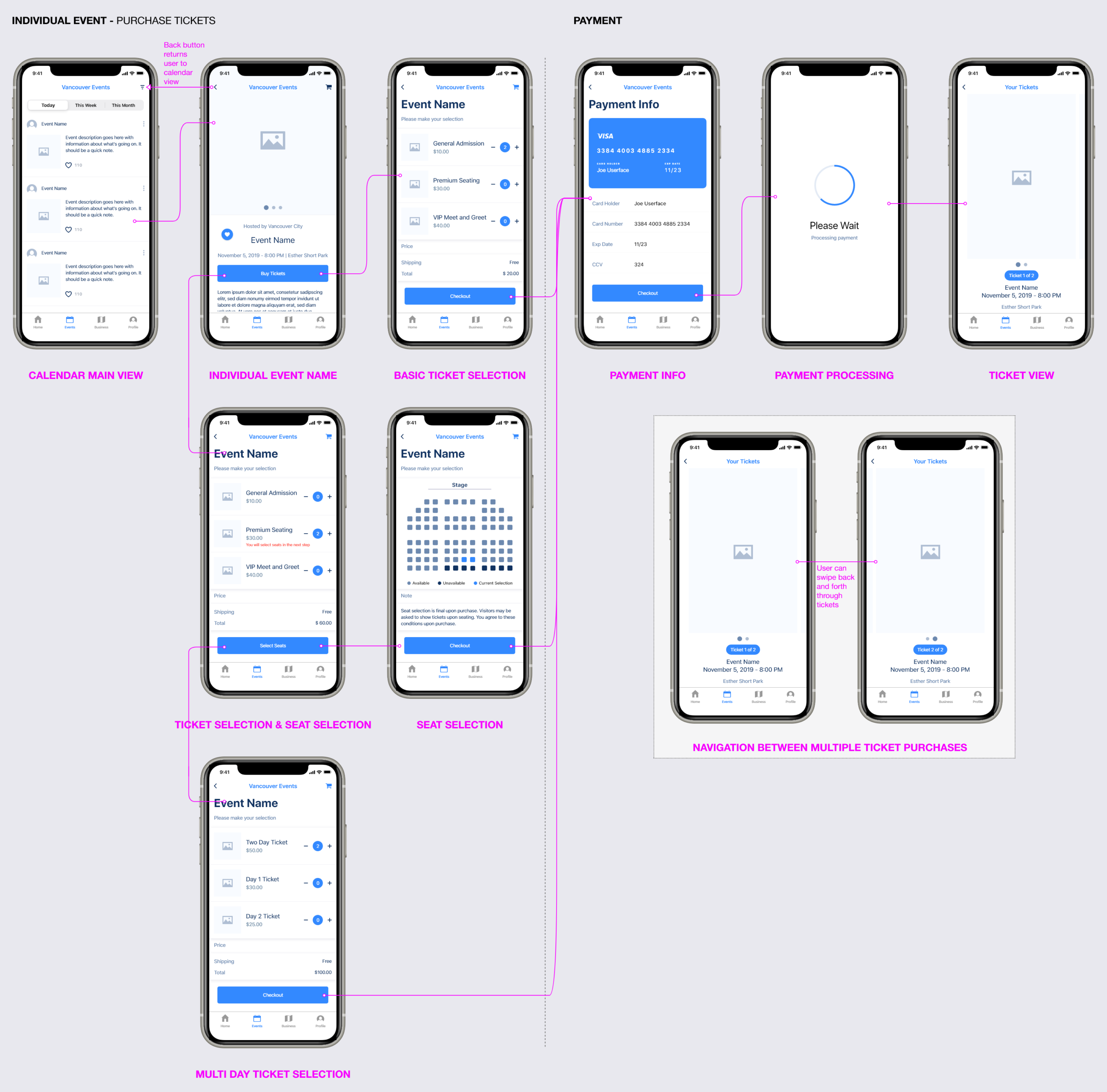
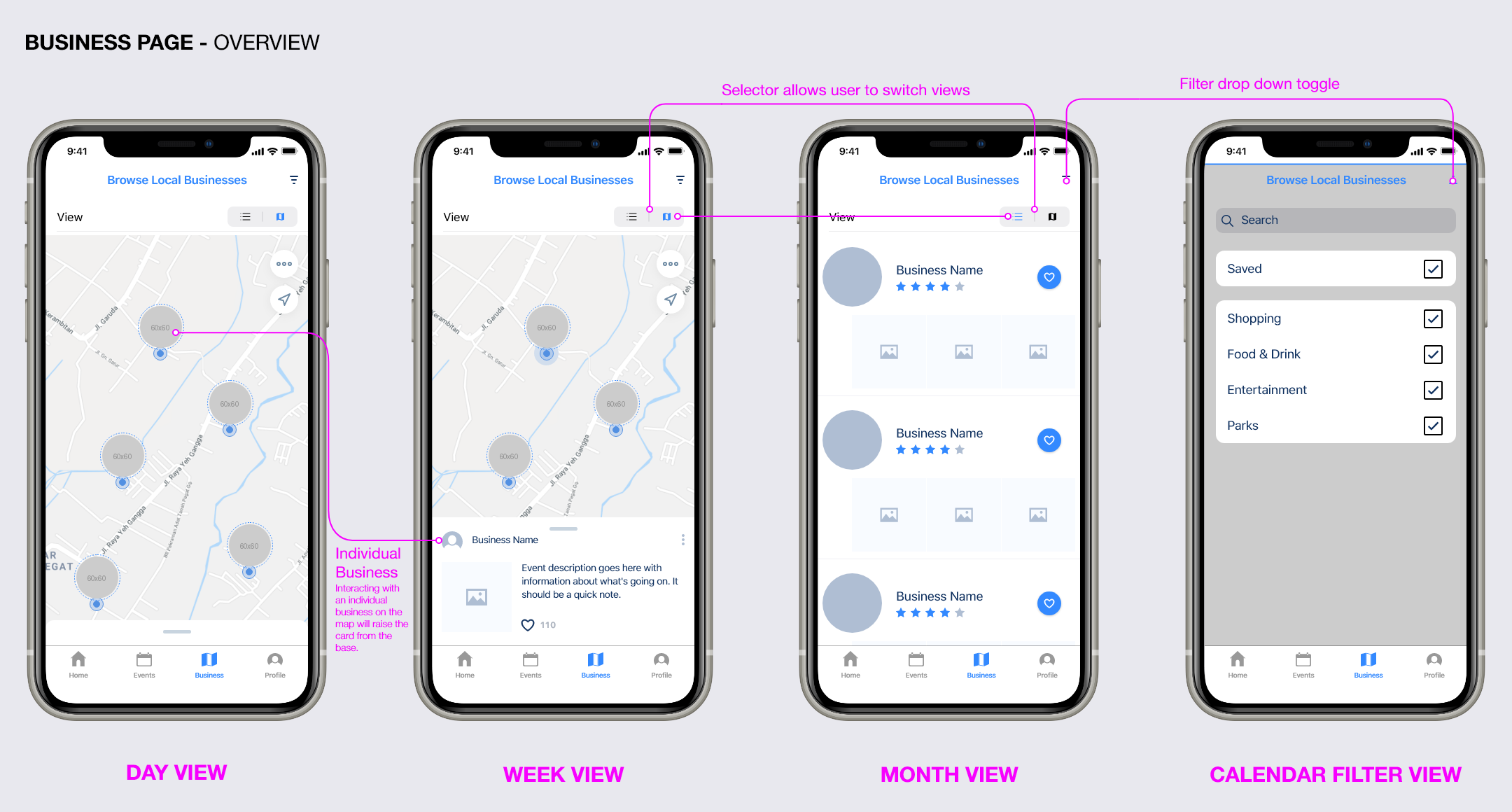
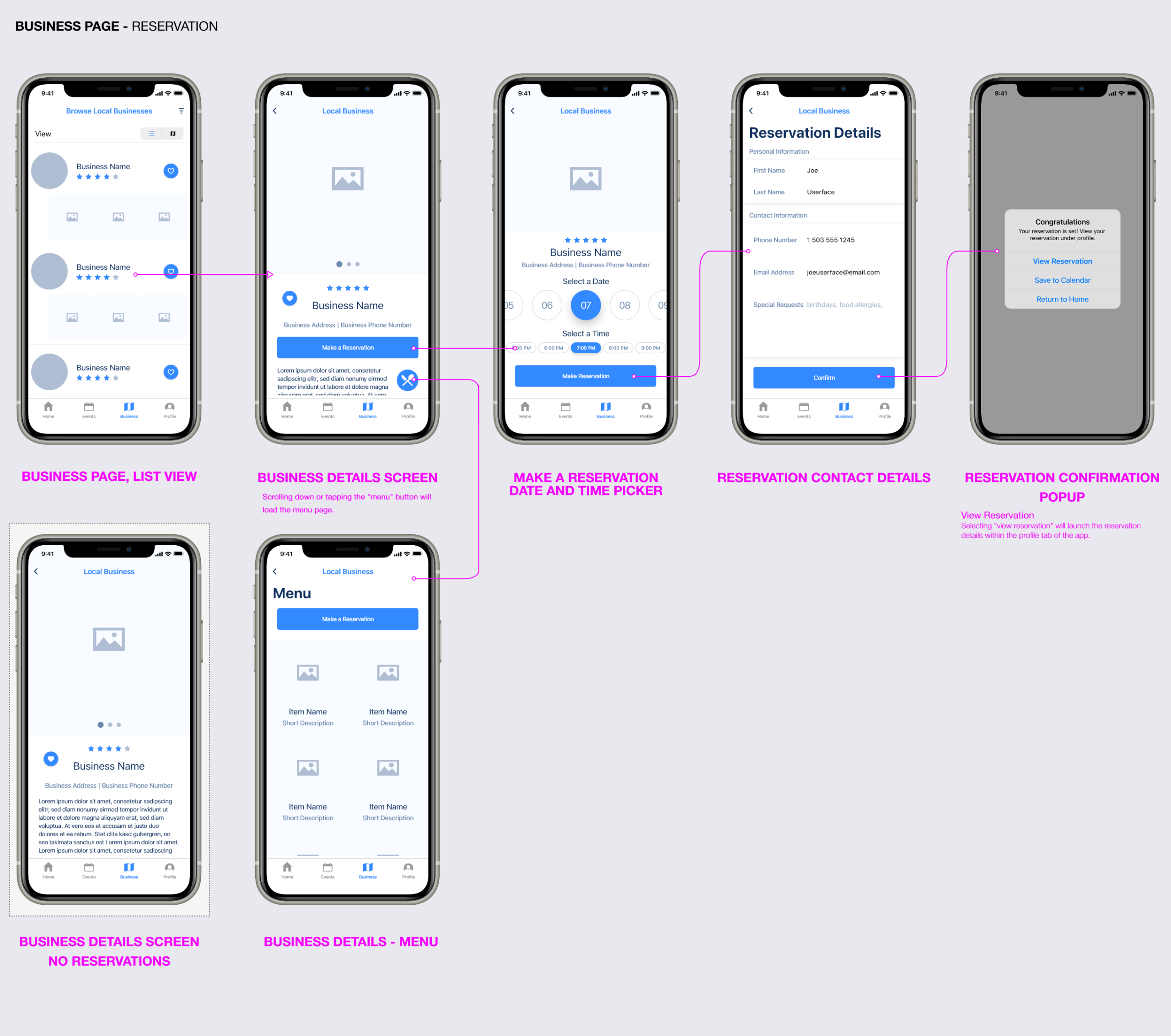
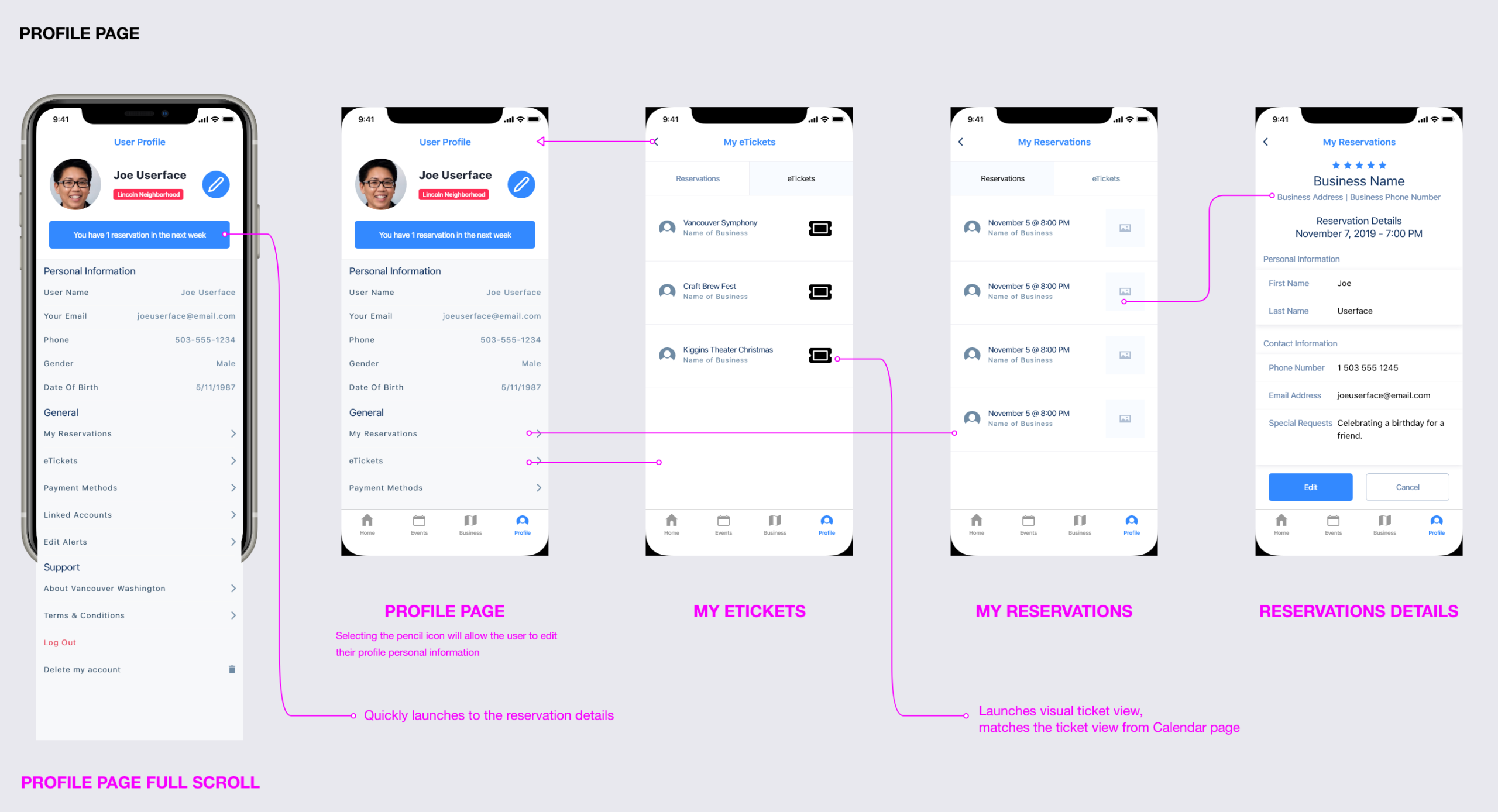
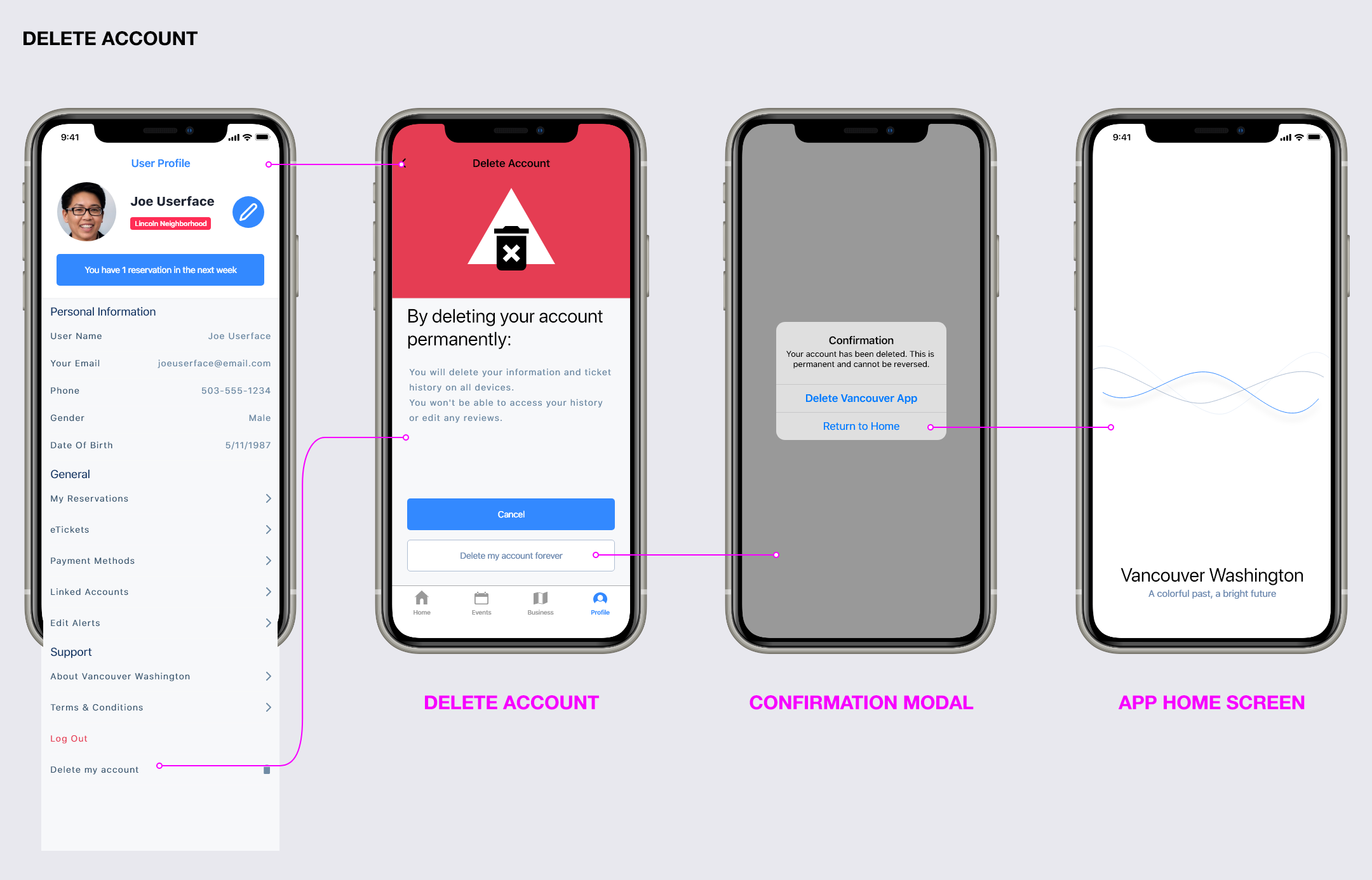
Prototype
A low fidelity prototype was created using Adobe XD. The prototype allows for basic interaction with the screens and navigation of the main functionality.
